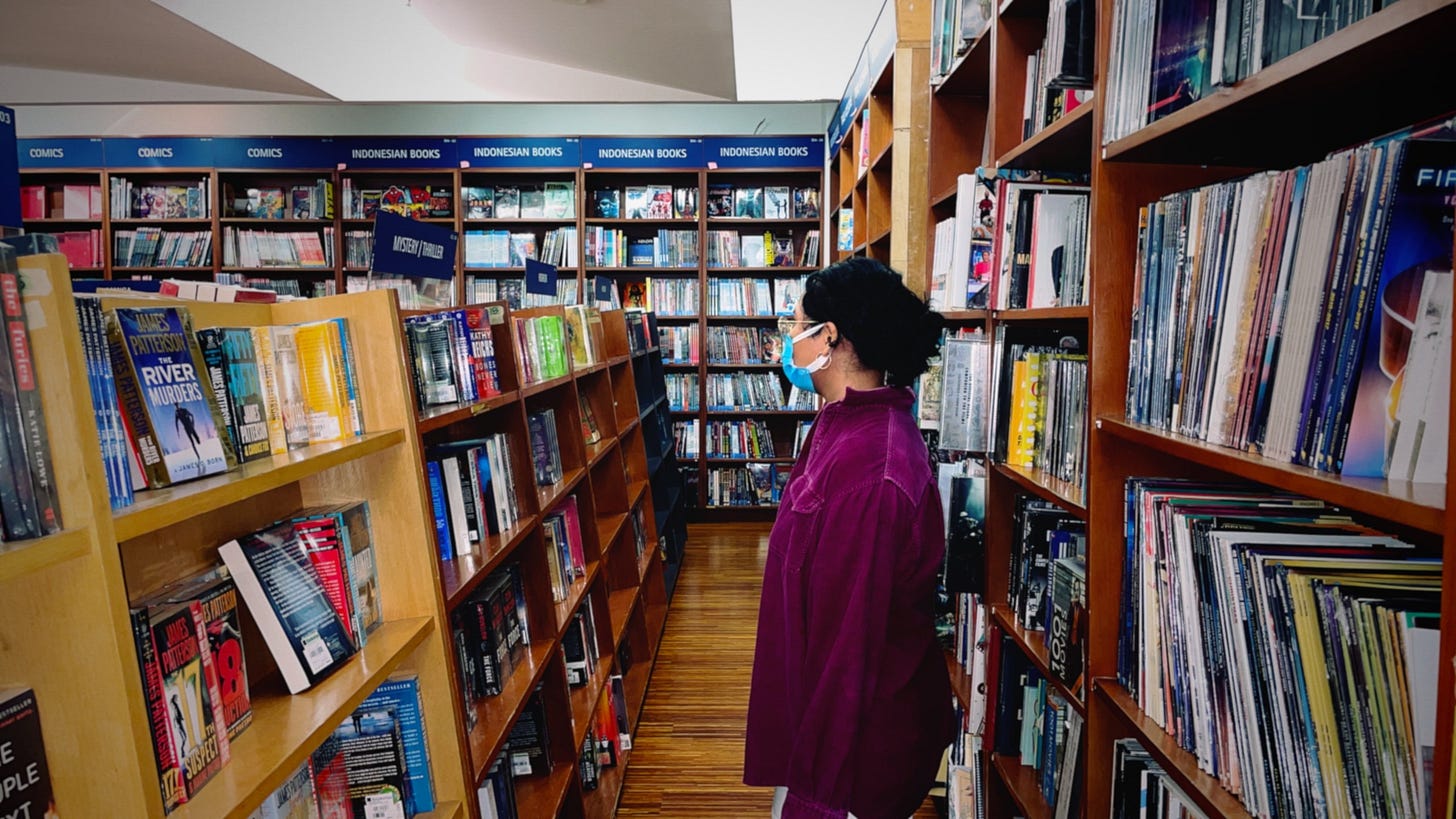#3: What's Lost and What We Lose
Hello and welcome to the third instalment of Party of Three. Are these intros awkward? Are they too formal? Anyway, this week’s letter turned out a bit longer than the past two letters. Apologies in advance if anything comes off incoherent. As always, thank you for being here. Thank you for indulging me.
Also, if you missed last week’s letter, you can read it here.
What a song can do
If you only listen to one thing this week, make it this Still Processing episode, in which Jenna and Wesley talk “Driver’s License”, what a bridge does to a song, and how TikTok trends may have given an “update” to how we can collectively engage with music. My favorite quotes below.
Jenna:
It’s really incredible when you get to engage with a piece of art, and I think with music it’s always about the somatic experience of where a song lives in your body. I think what a lot of artists have done and have really enjoyed doing is seeing not just where these songs live in people’s body but what their bodies do with them, what their minds do with them … It’s like the artists are like “I’m gonna write this song but I’m also gonna include something in it for you.” Like it’s almost a bonus track, like the B-side has become something else in this era. It’s not a singular bedroom experience anymore. It’s trying to kind of figure out how to fit yourself into this larger continuum of expression.
Wesley:
I’m really struck by how emotionally sincere a lot of them are. There is a joy and a pleasure in self-expression that’s wonderful, that in many ways, you don’t have to be Whitney Houston to express, right? You don’t have to actually be Janet Jackson. But you can take what they’re giving you and redirect it so that you can give it to somebody else. It’s like you’re passing along some energy, physical and emotional, from one source to another source, and that, to me, is what a great pop song can actually do too.
What’s lost and what we lose
Maybe it’s the stages of grief, maybe it’s “everything that’s been going on” — a saying that I find is becoming less and less universal as the pandemic worsens and improves in increasingly different measures across the world — but when I read on Twitter that they were closing Kinokuniya Plaza Senayan for good, I felt pretty numb. Part of me would expect to be sent on a mellow spiral upon learning of such news, but it’s been three days since and… nothing. I haven’t really seriously thought about it, other than to remind myself to think about it so that I can write about it for this newsletter (and to schedule one last visit before they shut down on Wednesday, March 31).
What does it mean to lose a bookstore a year into a pandemic that has for the most part barred you from paying it a visit, anyway? What does it really mean to lose a bookstore when, in ways big and small, life as you know it has already been lost? Already so used to preparing myself for the worst, whether through periods of fear and worry as loved ones battle illness, through the grief of losing the structures that energized me and gave me joy, the closure of Kino PS paled in comparison in both scale and impact. It felt like a long time coming, like it had been on the waitlist to “now defunct” status all along, ready to join a long list of other well beloved establishments that didn’t make it through. When I visited for the first time last year after months in quarantine, half the space was no longer operational. At the time the cashier had told me they were undergoing renovations. I guess not anymore.
I’ll miss the place a ton. I’ll miss aimless strolls along their shelves, checking in on titles from past reads like they’re old friends and checking in with friends when they’re a few minutes past our agreed meet-up time. The literature section at Kino PS just goes on and on and on from the front of the store to the back, and this, I think, is what separates Kino PS from the rest of the other Kinos. It is simply the perfect flow. I love the little single-seaters they have spread across the different sections; very nice cushion for tired butts. My favorite, though, is their children’s section. Was it carpeted? I can’t remember. But if you know me, you know I love sitting on floors, and the children’s section was the only place you could do that in the entire store. I read a third of “We Were Liars” on that floor. It was also always cute to see kids come in with their parents, begging to take home certain YA titles, because I relate (though my parents were never one to succumb). I never understood the point of the travel section. Don’t people look up guides online these days? I’m sure there’s a logic to it, but it’s always so quiet and empty, the area felt like underutilized space. Why not just give that up and keep the rest instead? When you’re done with books, there’s always the stationery section, with their selection of Japanese pens and notebooks, which introduced me to the Kuratake brush pen, my favorite journaling tool. I still have the tiny music box they used to sell on their trinkets(?) section that comes in different colors. A friend gave me one for my birthday in… 2011? When you turn the handle it plays “What a Wonderful World”.
I don’t think I’ve ever said this out loud, but a few years back when I worked in media, I told myself that the only “real company” (i.e. non-media and therefore non-writing gig) I’d ever work for would be a bookstore or publisher. Partly because I was watching too much “BookTube”, partly because it sounded cool, but really because I thought it would be the only kind of workplace I wouldn’t have to feign interest for during the interview process. I don’t really know where I’m going with this, I guess at this point I’m just typing out things that come to mind when I think of Kino PS. At the time, desperate for a job I didn’t hate, I searched for vacancies with possible links to Kino, which really only led me to looking up jobs at MAP, the company that runs Kino locally. Funny that around that time, I did end up working for a book-adjacent company.
In many ways, I already miss it. I miss it like I miss this city despite living and breathing in it every day. Even in its current existence, how I interact with it has always been partially informed by nostalgia and lost dreams. I miss it with the dumb hope that once this is all really over we are going to have it all back. A “restore history” button would present itself and we’d recover whatever else was lost — people, places, everything. Hard to be sad when you’re busy dreaming up alternate realities.
How do big ships float?
I’d like to extend my congratulations to everyone who knew of the existence of the Suez Canal before its blockage by a gigantic cargo ship made headlines this week. Not me, I didn’t. My brain’s stuck trying to fathom the concept of buoyancy. How do big ships float? How does anything? It’s been deeply humbling. Everyone else, please treat yourself to something nice for dinner and celebrate your genius brains.



